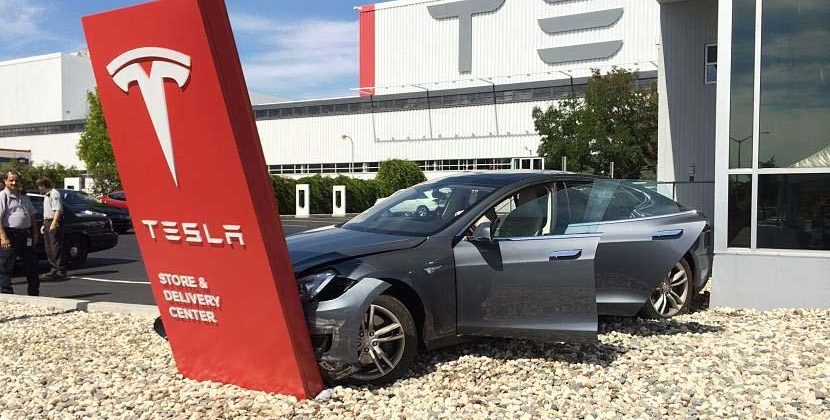
A comrade from Sweden sent us this short report from the current strike at Tesla. Things are also brewing at the Tesla plant in Berlin, both inside and outside, where a local initiative protests against the excessive water consumption of the factory.
Since the 27th of October, the workers at Tesla’s seven production sites in Sweden have been on strike. The strike is led by IF Metall, the country’s most powerful union, which has churned out many social-democratic ministers over the years. No IF Metall worker had been on strike since 2010.
IF Metall is demanding a collective agreement for their workers, which Tesla rejects. There is no Tesla production site anywhere in the world with a collective agreement.
By now, the strike has also spread to plants that produce parts for Tesla. In addition, there are numerous “sympathy strikes” by other unions. Sweden’s two main transport unions no longer unload Tesla cars in Swedish ports. The Electricians’ Union no longer maintains Tesla charging stations. The Building Maintenance Workers’ Union refuses to clean at Tesla sites. The Postal Workers’ Union does not deliver mail there. The Painters’ Union refuses to do paint jobs on Tesla cars. The Construction Workers’ Union refuses to do repairs at Tesla sites. The syndicalist SAC backs the strike but unfortunately has too few members in relevant industries to make a difference.
Tesla has been using strikebreakers from day one. They’ve also found ways around the blockade of delivering Tesla vehicles to Sweden. Now, they bring in vehicles registered abroad via Denmark. This means that the impact of the strike on Tesla’s production has so far been fairly limited. Some of Sweden’s about 50.000 Tesla car owners have felt it as they couldn’t charge their vehicles or bring them in for repair. The Swedish “Tesla Club” has written an open letter to the unions involved, complaining that individual Tesla car owners are more affected by the strike than the company itself. However, the unions claim that even Tesla will get to feel the consequences, and that they are in it for the long haul.
It’s not the most original of analyses, but, essentially, what we’re seeing is a (final?) clash between a (dying) Keynesian capitalism and unrestricted neoliberalism. Social-democratic corporatism vs multinationals owned by celebrity billionaires.
No wonder the strike has received a fair amount of international attention. Meanwhile, Swedish employers’ associations are shamelessly using the situation to pressure the government (far to the right) into revising the strike law. They are particularly unhappy about the legality of sympathy strikes. Their move comes only four years after the strike law in Sweden was curtailed significantly. Most strikes already are illegal. Essentially, you are only allowed to go on strike if you demand a collective agreement. Sympathy strikes are only legal in this context, too.



